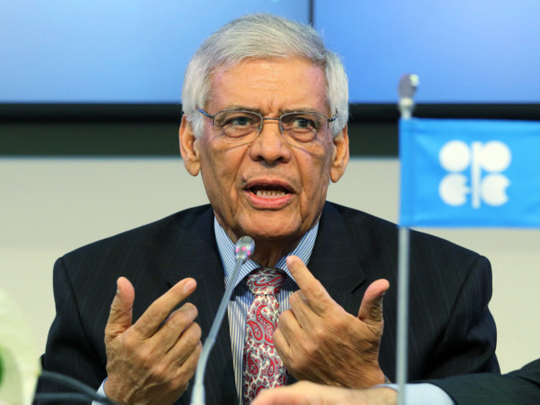
Many studies have been conducted in the last four years or so, since the beginning of the so-called Arab Spring, to try to gauge the impact of events in the rest of the Arab world on Gulf states. The findings of most studies stated that there would be no drastic impact on the Gulf but danger would arise when the price of oil started to fall. Probably, this too may not have a big impact as the price of oil has been steadily declining for months. And nothing has happened so far. But we should still be vigilant, as a lot depends on the kind of policies the GCC states will adopt in order to meet this unexpected turn of events.
One aspect to withstand the sudden fall in price is to try to end what has been called “the welfare state”. Gulf citizens depend on the state from cradle to grave, and enjoy social and economic benefits rarely found in other countries. Such policies were criticised by a good number of enlightened citizens of Gulf countries for a long time but authorities chose to ignore these warnings, with things remaining the same for long time.
The alternative now is to use falling oil prices to go back to the ‘economic state’ and that means putting a price tag on every service provided by the state to citizens or residents, even if it’s a small amount of money. Today, most of the services are free of charge, or almost free. For example, Kuwait’s health care services are entirely free. Many misuse this privilege, taking as much as they can from hospital pharmacies, much of which is thrown away. Education is free, from kindergarten to university.
Furthermore, Kuwaiti university students receive 200 Kuwaiti dinars (Dh2,517) every month as pocket money! The value of education, being free, is almost unappreciated. Students misuse the time and facilities and fail to obtain a real education at the end. Having been a university professor for almost four decades, I see it in front of my eyes how education in Kuwait is being degraded. Women can retire at the age of 40; and women who have no jobs and stay at home receive benefits of 500 dinars a month, and so on and so forth. A generous kind of welfare state exists in one form or another across all GCC states. And I have not even touched on other services such as heavily subsidised water and electricity services and almost free housing to most citizens.
Tightening the belt in GCC countries in a thoughtful and well-planned manner will not just reduce citizens’ dependence on the state, it will also make societies more productive. People will realise that wealth can be generated from hard work, and will appreciate the value of education, the benefit of computation, and the meaning of citizenship: to give, not just to take.
But this is easy to say, hard to implement, although some GCC countries have started raising the price of some services to market levels. But a wholesale price rise across the board coupled with a reduction in benefits offered requires careful thought and should be implemented gradually, ideally according to a timetable. It also warrants a sort of “citizen participation” in the affairs of state if we want to overcome the serious economic consequences ahead.
Another negative aspect of falling oil prices is the return of the conspiracy theory to the forefront of Arab thinking. There is always somebody hiding behind the bush, dictating the events. A number of Arab commentators believe that there must be a reason behind this sudden fall in the price of oil. And they say the US is trying to make things hard for countries that depend on high oil prices, especially “troublemakers” like Iran! Or even Russia.
This kind of interpretation is easily marketed to the masses as a fact. One expert I trust assured me that the fall in price was the natural result of supply and demand. There are no other reasons. But this kind rational interpretation is hard to sell, its interferes with the wishful thinking most people accept.
Other benefits GCC countries can get from the falling price of oil are strategic. Both Russia and Iran depend heavily on oil, and because the situation drove the prices down in supply and demand, the Saudis are the only ones who have the capacity, technically speaking, to lower production worldwide.
So Saudi Arabia has the upper hand in bargaining with those two countries on the Syrian front, Iraq and even Bahrain.
Russia and Iran are playing havoc with the internal political scene in these countries and this threatens to destabilise the whole region, mainly Arab states. From what we are witnessing, it looks like the ball has started rolling.
Saud Al Fisal, the Saudi foreign minister, was recently in Moscow, and the Russians called for talks mediated by them between the Bashar Al Assad regime and sections of the Syrian opposition. The demands of economics, in some ways, over-rule politics.
As we saw earlier earlier at the time the price of oil was going down, the Iranians and the Saudis managed to strike an accord during Mohammad Khatami’s rule.
Is this history repeating itself?
Mohammad AlRumaihi is a professor of political sociology at Kuwait University. You can follow him on Twitter at www.twitter.com/@rumaihi42







